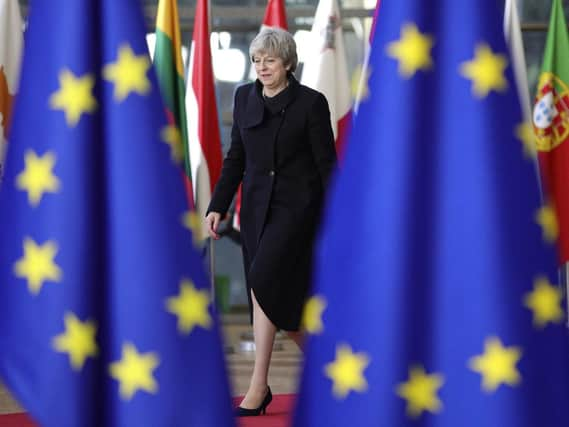Businesses must keep clean as backdrop adjusts


Events such as the nerve agent attack in Salisbury and heightened sanctions against Russia have given much-needed impetus to the UK’s fight against dirty money. But with uncertainty still surrounding the post-Brexit sanctions regime, Scottish businesses must navigate a complex maze of due diligence red flags without sacrificing valuable trade opportunities.
The UK has in recent years arguably become a safe haven for corrupt money. As well as the overseas territories, London and Scotland are both part of the web. Among fraudulent activities carried out under the guise of Scottish Limited Partnerships, for example, were a $1 billion Moldovan Bank fraud and the facilitation of a £2.2bn money-laundering scheme in Azerbaijan.
Advertisement
Hide AdAdvertisement
Hide AdThe Scottish Partnerships (Register of People with Significant Control) Regulations 2017 aims to address this by obliging ultimate owners and controllers of Scottish limited partnerships to be registered with Companies House.
Further challenges remain, especially at UK level and in light of London’s buoyant property market. UK charity Transparency International reports that £4.4bn worth of property in the UK was considered to have been bought with suspicious wealth, yet there is no public register revealing the true owners of overseas companies buying UK property.
Successive governments have attempted to tackle money-laundering. While some positive advances, such as the implementation of Unexplained Wealth Orders, have been made, words have not always been met with action and there is now a risk that Brexit will damage the effectiveness of sanctions and corruption laws.
The Treasury Select Committee has announced an inquiry into economic crime, including the possibility that overseas-owned UK homes could be used as shields for money-laundering. Committee chair Nicky Morgan MP says anti-money laundering and sanctions will form one strand of her committee’s investigations.
As MPs look to gauge the effectiveness of the current legislative and regulatory regime, questions are being asked about the UK’s role on the international stage. The means by which financial institutions and professional bodies operate in this area is also within the inquiry’s scope, with a focus on the recently launched Office for Professional Body Anti-Money Laundering Supervision housed within the Financial Conduct Authority.
The UK’s sanctions framework is also under scrutiny, as it could be weakened significantly by Brexit. Sanctions form an important aspect of foreign policy and national security, allowing governments to express disapproval of and seek to change the behaviour of other states and individuals without resorting to military action. But they are most effective when they are applied multilaterally.
The UK’s sanctions framework is derived from two main sources – the UN Security Council and the EU. On withdrawal from the EU in March, the automatic implementation of EU sanctions will end, and the Sanctions and Anti-Money Laundering Bill, currently before Parliament, risks being ineffective in the absence of a formal UK-EU partnership on sanctions policy.Scotland’s economy faces losing up to £16bn a year as a result of leaving the EU, according to a Scottish Government forecast.
The additional impact of sanctions, on countries such as Iran and Russia, often causes Scottish businesses a commercial headache. Navigating the complex sanctions maze and economic crime obligations can make the UK feel like a tough place to trade.
Advertisement
Hide AdAdvertisement
Hide AdHowever, sanctions are designed to target specific issues. They are usually not a bar on all trade with a country. Despite the tone of recent reports, the Russian sanctions are actually quite narrow and mainly targeted at particular aspects. Businesses can often find that they don’t apply to the particular project in mind. The EU has launched an interactive online map to help steer through the jungle of international sanctions in force against regimes, organisations and individuals around the world.
More than ever, Scottish businesses need to ensure there is a top-down approach to compliance; sanctions regimes are being monitored; and disclosure requirements are carefully updated. Training of staff and communication of policies are key. Aligning sanction screening to third-party due diligence mitigates the risks of doing business right from the outset.
Businesses in Scotland shouldn’t wait for enforcement action as a trigger to review and update policies and procedures in relation to sanctions and anti-money-laundering compliance. Red flags, such as doing business in Russia, ought to be carefully navigated, often by taking legal advice and ensuring water-tight compliance systems. If businesses think compliance is expensive, they should try non-compliance.